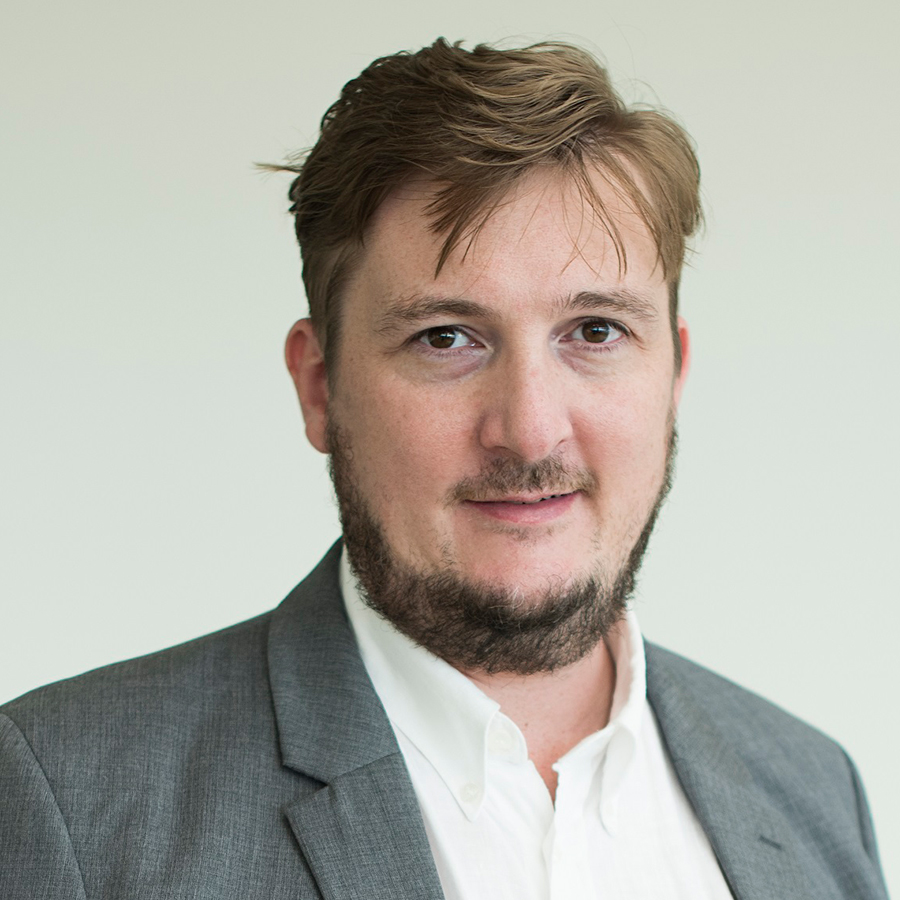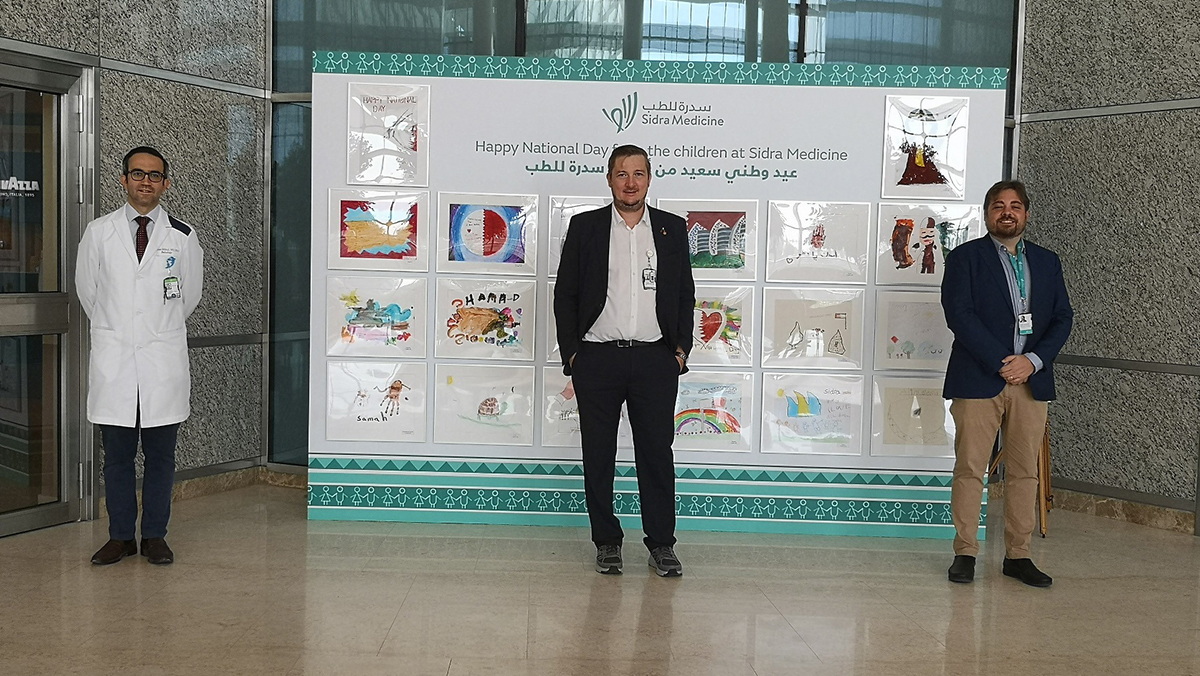QF entity marks International Childhood Cancer Day with biorepository to develop personalized cancer therapies
14 February 2021, Doha, Qatar – A multidisciplinary team of researchers and clinicians at Sidra Medicine, have launched a pediatric cancer biorepository pilot to develop personalized cancer therapies for patients.
Lead by Dr. Wouter Hendrickx, Principal Investigator (PI) of the Pediatric Cancer Omics Lab and the Lead PI of the pilot, in close collaboration with Dr. William Mifsud, Attending Physician from Sidra Medicine’s Anatomic Pathology division, the biorepository is an integrated system that will collect patient samples and match complex data with clinical information.
Dr. Wouter Hendrickx said: “Personalized medicine is transitioning away from a ‘one size fits all’ treatment approach towards a more advanced and detailed version, to better manage patients’ health. This not only helps manage the disease but also offers the best outcomes. The development of the biorepository pilot is a true showcase of how our research, pathology, patient care services have collaborated to offer the possibility for each pediatric cancer patient to have their malignancy investigated in the most advanced way available.”
The cancer process is driven by continuous random mutations, and patients often carry a multitude of different mutations resulting in a very heterogeneous presentation of the disease and variations in outcome and response to treatment. Additionally, immune cells can recognize and kill cancer cells, which in turn can develop alterations that make them “invisible” to the immune system.
Cancer precision oncology involves the molecular profiling of a patient’s cancerous tissues. Major advances in the technologies for characterizing patients’ genomic, proteomic, metabolomic, and cellular profiles have allowed tailoring treatment strategies to precisely target the molecular alteration underlying each individual patients’ disease.

“This pilot will result in a collection of data that will enable us, in the short term, to advice clinical grade diagnostics of rare targetable somatic mutations and facilitate patient enrollment in clinical trials that will bring us a step closer to finding the best treatment plan. We believe that in the long term, this project will pave the way for personalized precision medicine for each pediatric cancer patient in Qatar. Sidra Medicine aims to work closely with Qatar BioBank to make this repository a success,” continued Dr. Hendrickx.
The biorepository is a joint effort from across Sidra Medicine’s research and clinical functions with close collaboration with the pediatric oncology department, headed by Dr. Ayman Saleh and the Clinical Research Center led by Dr. Chiara Cugno. It involves the profiling of the genetic markers of each patient’s tumours, followed by a cellular analysis which will help identify potential target for cellular therapy and non-invasive diagnostic imaging tools.
Dr. Davide Bedognetti, Director of Sidra Medicine’s Cancer Research Department said: “What we do is to analyze as many parameters as possible to find the important ones that can be used to guide treatment or find novel targets. Nowadays we can study each single cell composing the tumor mass separately. This means studying both tumor cells and the immune cells of the patients. But to do so we need to store and process samples right away, as soon as they are collected, using specific protocols. In this sense, a systematic collection such as the one implemented in the Biorepository Pilot, represents the first and critical step to allow a comprehensive characterization of the cancer.”
“With the speed at which research and medicine is evolving, new treatments are coming out in rapid succession. With the 15th of February acknowledged as International Childhood Cancer day, we firmly believe that this pilot is a step in the right direction towards Sidra Medicine’s precision medicine program,” continued Dr. Bedognetti.
Upon diagnosis of a malignancy, pediatric oncology patients at Sidra Medicine will be offered the opportunity to participate in the pilot project and donate their cancer tissue that is no longer required for their clinical diagnosis to the Sidra Pediatric Cancer Biorepository. The materials will then be used to investigate their disease in order to develop personalized cancer therapies.
Dr. William Mifsud, Attending Physician, Pathology Department said: “Our program showcases Sidra Medicine’s vision of precision medicine for every child. We are bringing together our world-class research capabilities and advanced clinical care so that all children with cancer in Qatar can have the opportunity to have their tumors studied in unprecedented detail. By understanding the development and evolution of each tumor from every child, we may be able to target each patient’s cancer with specific and personalized therapies.”
“By making our program available to all willing families of children with cancer in Qatar, we will build a unique understanding of the molecular events involved in the development, maintenance and response to treatment in childhood cancer as they apply specifically to our patient population. We urge all families of children with cancer in Qatar to join us in this endeavor,” concluded Dr. Mifsud.


